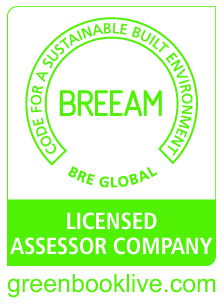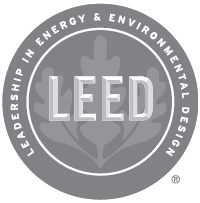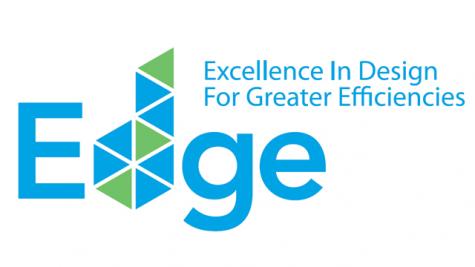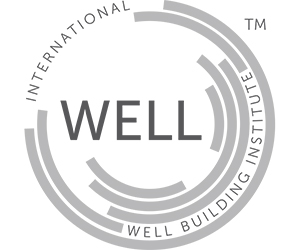
BREEAM
British based BREEAM (Building Research Establishment Environmental Assessment Method) is an internationally recognized assessment method that draws attention to the sustainable characteristics of buildings. BREEAM was established in 1990 by BRE Global in the UK and is a green building assessment system active in more than 50 countries around the world with more than 250,000 certified buildings. BREEAM sets standards for the best implementation of sustainable design and has become the current benchmark for environmental performance throughout the life cycle of buildings. In line with BREEAM, building performance is handled under the titles Health and Comfort, Energy, Transportation, Water, Material, Waste, Land Use and Ecology, Pollution, Innovation by independent and accredited auditors. Buildings are evaluated and certified on a scale determined as Pass, Good, Very Good, Excellent and Outstanding.
BREEAM helps building owners, users, designers and operators to produce successful and cost-effective solutions and facilitates their recognition within the market. It also continues its efforts to raise awareness of the benefits of the lifecycle approach of sustainability.
BREEAM certificates valid in Turkey are:
- BREEAM International New Buildings 2016
- BREEAM-In-Use: Certificate for Existing Commercial Buildings
- BREEAM Communities: Settlement / Neighborhood Certificate
- BREEAM BESPOKE: Establishing criteria appropriate to the tailor-made building function or site
LEED
LEED (US based certificate which is issued by USGBC and given by GBCI)
LEED (Leadership in Energy and Environmental Design) is an internationally recognized independent green building certification program developed by the United States Green Building Council (USGBC)
LEED projects are designed, built and implemented in accordance with criteria that reduce the harmful impact on the environment and protect human health. LEED certified buildings implement strategies that reduce energy and water use, ensure efficient resource utilization and improve air quality. The strategies that meet the LEED criteria are awarded with a total of 110 credits, and buildings that have certain majority of these credits are eligible for LEED certification. TURKECO has been the first Turkish company to be elected to the Board of Directors of the USGBC. As a member of the Board of Directors responsible for international projects, our founder has been active in the strategies of the most important green building organization of the world. Since its establishment, TURKECO has bring projects to be awarded LEED certificate with its expert staff.
Our expert staff has contributed to the construction of the building in accordance with LEED criteria by working with the employers and the project team in all processes from the design stage to the end of the construction. These projects have received LEED-Platinum and LEED-Gold certificates, the highest in LEED, and have proven the ecological and sustainable characteristics of their buildings. As of March 2018, were the leading firm for receiving LEED Platinum certification for the projects we were consulting.
LEED FACULTY
TURKECO LEED projelerini değerlendiren, aynı zamanda eğitimci lisansı ile USGBC ile partnership anlaşması olan bir firmadır. Her yıl yapılan GREENBUILD konferanslarına eğitimci ve danışman olarak davet edilmekteyiz.
How does LEED work?
LEED credits are in six categories. Within each category, there are some mandatory strategies and other strategies which give credit to the building for certification. The credit weights of the strategies are calculated by proportioning the practices with the contribution to nature and human health.
- Sustainable Sites
- Water Efficiency
- Energy and Atmosphere
- Material and Resources
- Indoor Air Quality
- Innovation in Design
Which buildings can achieve LEED certification?
The LEED evaluation system is divided into groups. These systems are classified according to the type and function of the buildings.
Building Design and Construction (LEED BD+C):New construction or renovation projects
Categories
| New Building | Health Centers |
| Core and Shell | Data Centers |
| Schools | Hotel |
| Retail | Warehouse and Distribution Centers |
Interior Design and Construction (LEED ID+C): Interior design projects for commercial buildings
Categories
| Corporate Interiors | Hotel |
| Retail |
Building Operations and Maintenance (LEED O+M): Improvement projects for existing buildings
Categories
| Existing buildings | Hotel |
| Data Centers | School |
| Warehouse and Distribution Centers | Retail |
Neighborhood Development (LEED ND): Neighborhood projects that consist of more than one building
Categories
| Plan | Project |
Homes: Low-rise housing projects
Categories
| Singular Housing | Multi Family 4-6 Storey Houses |
| Multi Family 1-3 Storey Houses |


DGNB
DGNB is a system established with the partnership of the German Sustainable Building Council and the German United Ministry of Transport, Construction and Urban Affairs for planning and evaluation of the building with a quality perspective. This certificate covers the economic and social factors that are not in the content of other international certificates; therefore, it exceeds the green level and is called the Sustainability Certificate. The German Sustainable Building Certificate, which is structured in a scientifically structured manner, includes all relevant sustainable building issues. Six items that affect the assessment are as follows: Ecology, Economics, Social Cultural and Operational issues, technical issues, Land Settlement and Processes. DGNB documents the building it examines at three different levels such as Bronze, Silver and Gold.
The certificate is based on the implementation of sustainable building aims set at the starting point of the project in accordance with the integrated design principles. Thus, sustainable structures can be designed according to the latest technology and can document their quality with this new certificate.
EDGE
EDGE is a way to make a green building “Quick”, “Easy” and “Economical”, in more than 130 countries that Turkey is also included. EDGE provides a measurable way for project teams and property developers to optimize their designs according to local criteria. With its ever-growing scope, EDGE can be used for new and existing buildings, including residences, offices, health buildings, retail sector structures and hotels.
EDGE is supported by free and online software for everyone. EDGE Software, available from Edgebuildings.com, provides results specific to project’s location, using local costs and climate data. The detailed modeling and calculations behind the simple user interface provide users with detailed information about not only the efficiency of their buildings, but also the additional costs, investment costs and return on investment times.
EDGE Standard is the framework of the system’s numerical approach. In order to achieve the EDGE standard and to receive the certification, the projects must ensure a minimum 20% efficiency in energy consumption, water use and embodied energy in the materials compared to the reference building prepared in accordance with local standards. A project that achieves at least 20% efficiency in each of the fields -embodied energy, water and materials- is eligible for the EDGE Green Building Certificate.


WELL
The WELL Building Standard is a certification system based on a thorough comprehensive review of existing research on the impact of space on users, and a detailed scientific and technical evaluation,
Well is the result of seven years of extensive research in collaboration with leading health professionals, scientists and industry professionals.
The WELL Building Standard is the first standard to focus only on the health and well-being of users of the building, and consists of 7 basic concepts and 100 performance measures, design strategies and policies that can be implemented by building users, designers, engineers, contractors and building operators.
WELL Building Standard is applicable to commercial and institutional buildings and WELL Certification can be applied to three building typologies. These are;
- New and Existing Buildings
- New and Existing Interiors
- Core and Shell
In order to fulfill the requirements of the WELL Building Standard, the environment must be evaluated, and performance tests should be done, by third parties.
WELL Certified spaces and buildings help users improve their eating habits, activity levels, mood, sleep patterns, comfort conditions and performances in the built environment.
WELL is managed by the International WELL Building Institute (IWBI) and third-party certification is carried out in collaboration with Green Business Certification Inc. (GBCI).
INFRASTRUCTURE CERTIFICATIONS
CEEQUAL
CEEQUAL is the evidence-based sustainability assessment, rating and awards scheme for civil engineering, infrastructure, landscaping and public realm projects. Benefits of CEEQUAL:
Delivers more sustainable Civil Engineering projects, Enables performance improvement, Delivers better value and reduces costs, Demonstrates commitment to sustainability best practice, Enhances team collaboration, Enables benchmarking and knowledge sharing
ENVISION
Envision is a framework that provides the guidance needed to initiate this systemic change in the planning, design and delivery of sustainable and resilient infrastructure. Envision is a decision-making guide, not a set of prescriptive measures. Envision provides industry-wide sustainability metrics for all types and sizes of infrastructure to help users assess and measure the extent to which their project contributes to conditions of sustainability across the full range of social, economic, and environmental indicators.
